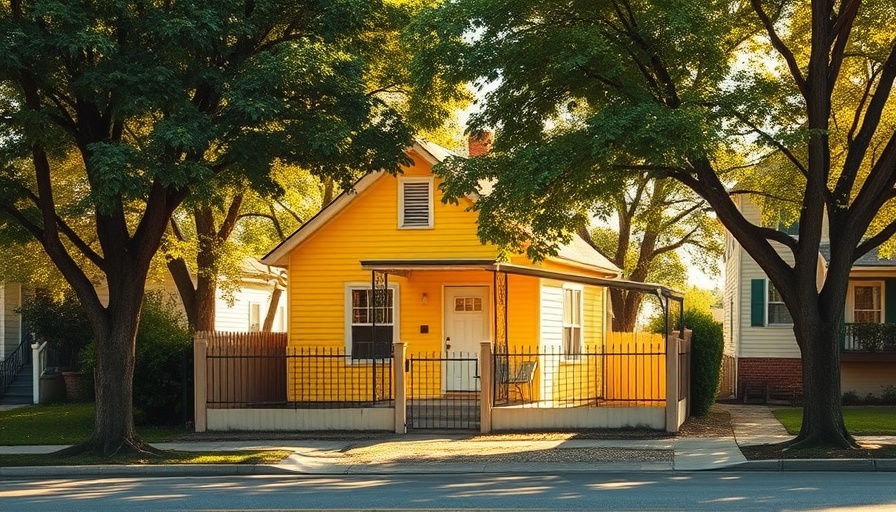
Understanding the Housing Crisis for Older Adults with Criminal Histories
Many older adults who have been incarcerated face unique challenges when trying to secure affordable housing as they reintegrate into society. The barriers they encounter often stem from strict criminal background checks implemented by Public Housing Authorities (PHAs), which serve as gatekeepers to federal rental assistance programs. According to studies, about 85% of PHAs conduct criminal history screenings, resulting in the denial of housing assistance to a significant number of applicants. These re-entering seniors are often left with few options, pushing them towards homelessness.
Challenges in Advocating for Change
The advocacy landscape is complex, especially when it involves changing long-standing institutional policies. Despite the potential legal frameworks like the federal Fair Housing Act intending to protect vulnerable groups, the reality is that many PHAs continue to deny housing based on criminal histories. The need for reform is pressing and requires a concerted effort from advocates willing to engage with PHAs to encourage more equitable screening practices.
HUD’s Proposed Rule and Policy Recommendations
In 2024, HUD proposed guidelines aimed at reducing barriers for individuals with criminal records seeking housing. Although this initiative was never finalized, the suggested policies provide a roadmap for advocates. These recommendations focus on promoting inclusive admissions practices among PHAs and ensuring compliance with fair housing standards. Engaging in the PHA planning process remains essential for advocates seeking to influence policy changes. Through persistent dialogue and proposal of reasonable reforms, advocates can push for greater access to housing for formerly incarcerated older adults.
Revisiting the Role of Technology in Housing Applications
As the landscape of housing applications continues to evolve, technology can play a significant role in shaping equitable housing practices. Digital screening tools could streamline the application process while incorporating machine learning algorithms to minimize bias against applicants with criminal histories. Advocates can collaborate with tech companies to develop innovative solutions that align with the mission of making affordable housing more accessible.
Community Support and Engagement: A Necessary Component
Building community connections is crucial in advocating for changes in rental policy. Engaging with local organizations that support formerly incarcerated individuals can amplify the voices of older adults within this demographic. Community engagement activities can raise awareness of the unique challenges these individuals face and stimulate broader discussions on reform. Through education and collaboration, advocates can better equip communities to support housing initiatives that benefit formerly incarcerated seniors.
Understanding the Importance of Fair Housing
Fair housing is not just a policy issue; it is a fundamental human issue that impacts the dignity and welfare of older adults who have faced incarceration. Creating awareness about this topic can foster a more informed public, potentially leading to policy shifts that prioritize the needs of vulnerable populations. The collective response from advocacy groups and community stakeholders is crucial in setting a precedent for more compassionate and just housing policies.
Advocacy efforts should not only aim to influence policies at the level of PHAs but also engage stakeholders across various sectors to promote a more inclusive approach to housing for all seniors, regardless of their past. By working together, it may be possible to bring transformative change that endures.
As we continue to navigate these complex challenges, it is imperative for advocates, community leaders, and policymakers to collaborate in developing actionable strategies that effectively address the housing crisis faced by formerly incarcerated older adults. For more detailed recommendations and advocacy strategies, download our comprehensive issue brief.
 Add Row
Add Row  Add
Add 




Write A Comment